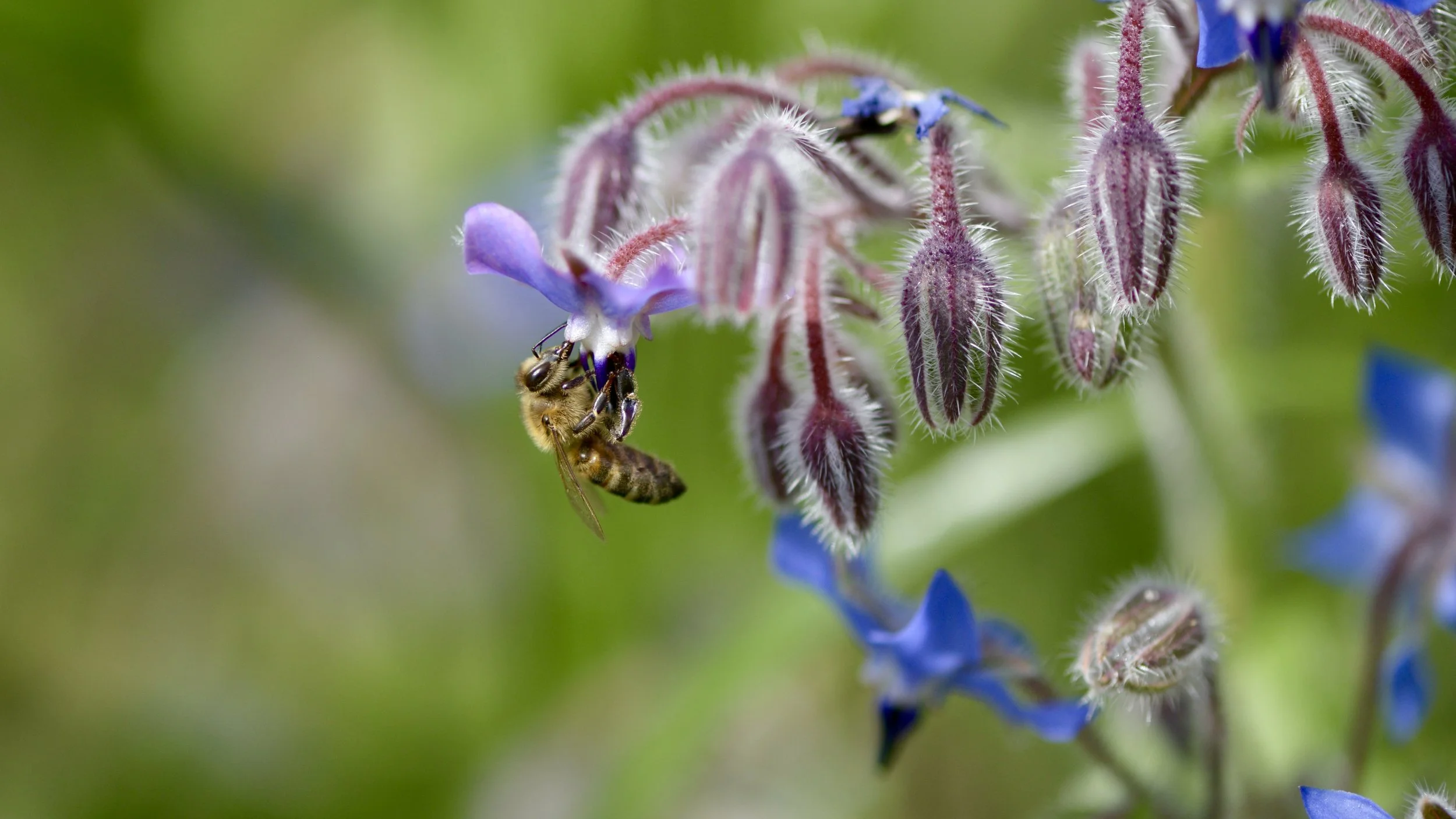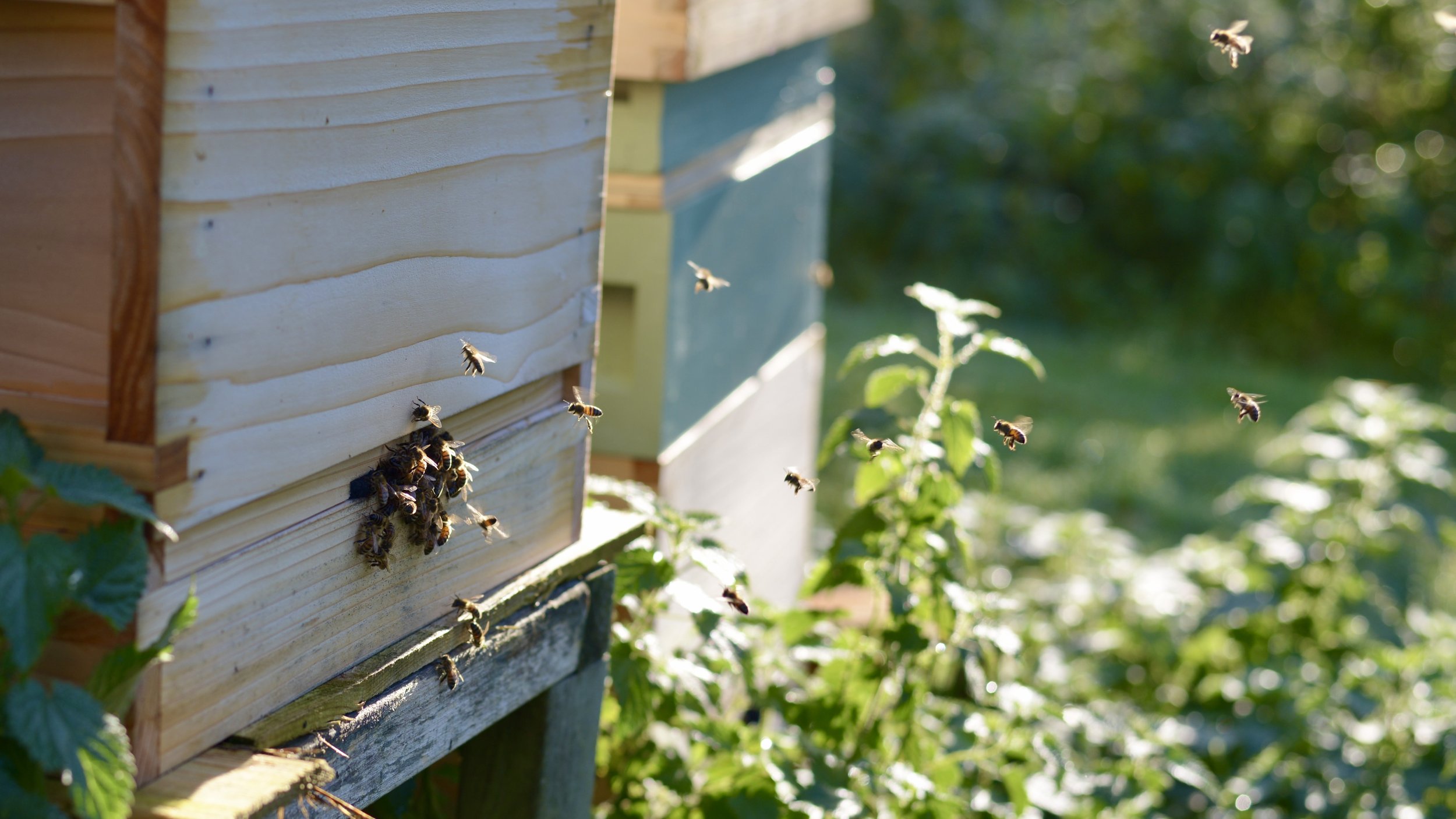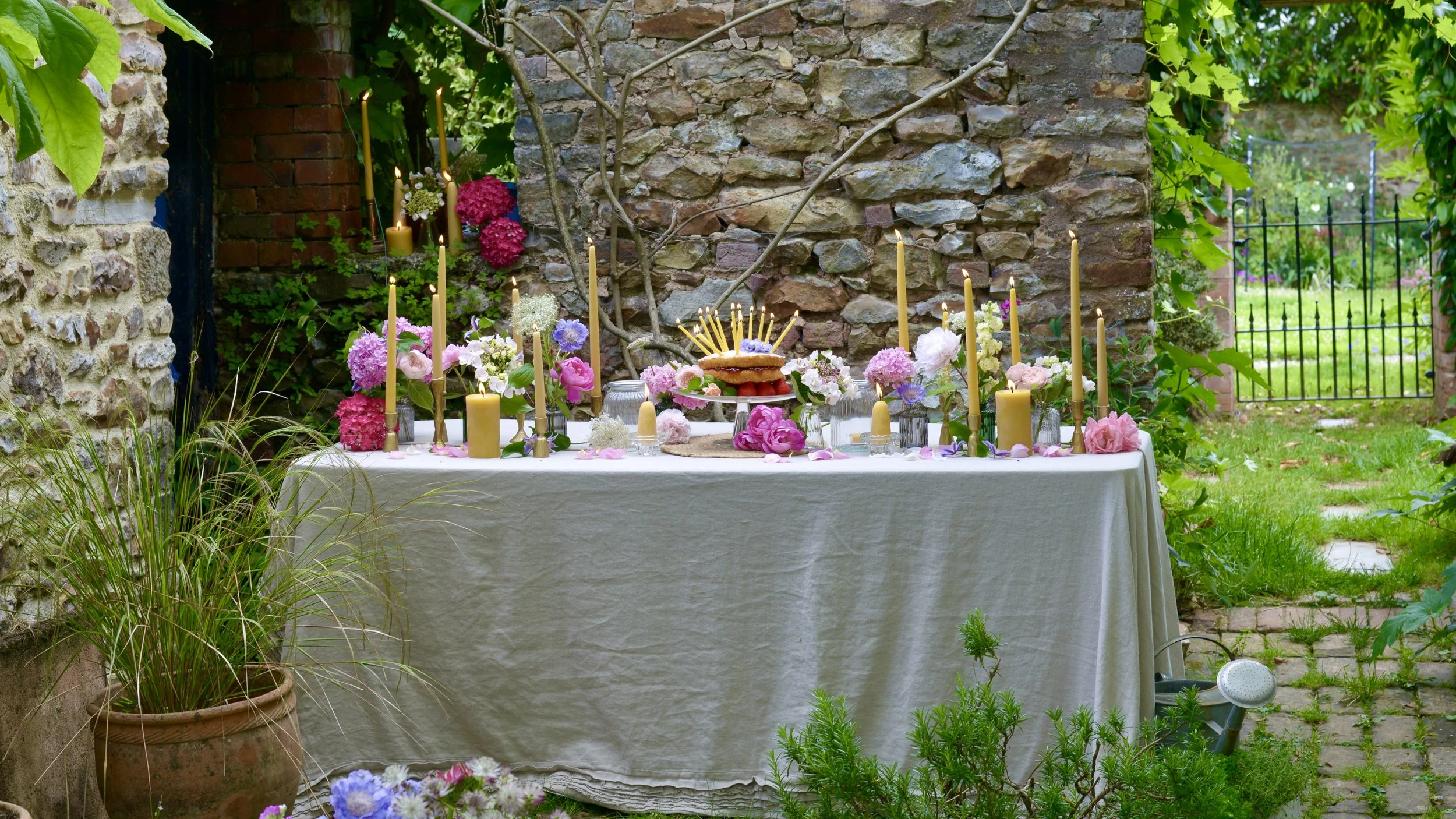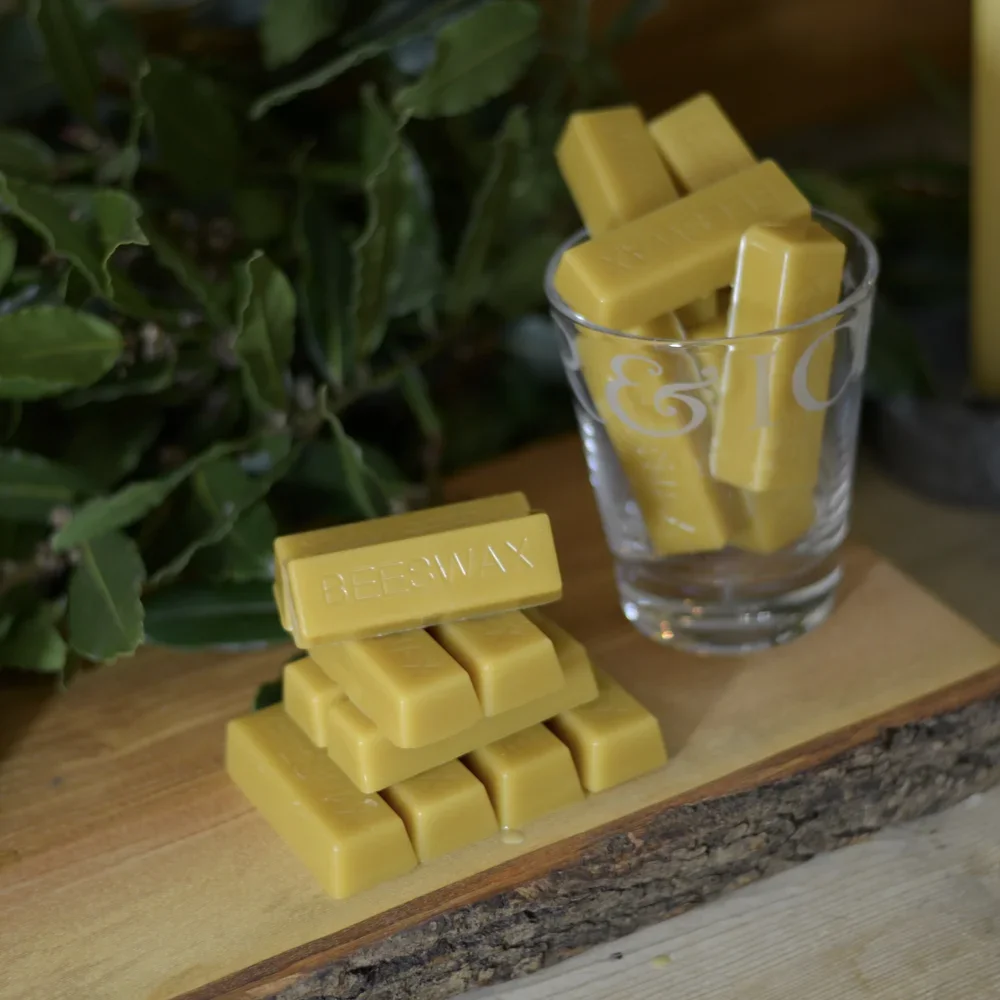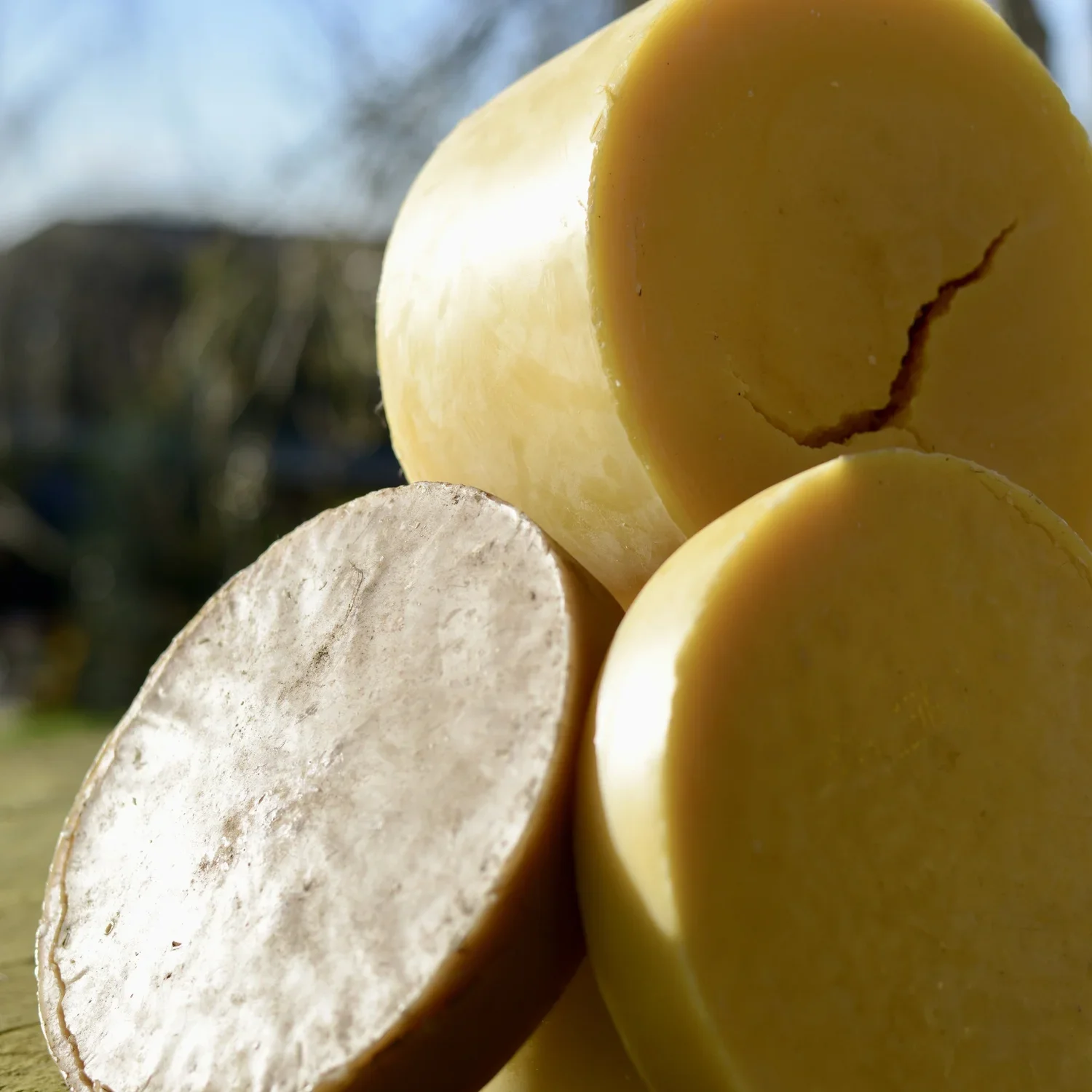
Our Beeswax
Beeswax is the material that honey combs are made of and it comes from young worker bees who produce wax scales from glands under their abdomen.
Uses of Beeswax:
Lubricate door hinges
Make all-natural lipstick
Season cast iron pans
Coat garden tools to prevent rust
Polish shoes with a solution of beeswax, olive oil and pigment
Decorate your Christmas tree with moulded wax ornaments
Light your house with smokeless beeswax candles
Polish furniture with a solution of oil, beeswax, and lemon oil
Condition cutting boards and wooden spoons
Refill tealights with beeswax
Mix with pigments to make encaustic paint
Lubricate screws to make them easier to screw in
Heal cuts with a salve made of olive & coconut oils, beeswax, vitamin E and calendula, lavender, and chamomile
Make fire starters out of pinecones and leftover beeswax
Keep bronze and brass items shiny
Tame flyaway hair
Fill cracks in wood
Rejuvenate old leather
Coat cloth to make reusable wrap for cheese and vegetables
Coat nails to prevent wood splintering
Make lip balm out of shea butter, beeswax and coconut oil
Soothe bug bites with a solution of tea tree oil, lavender, beeswax, and calendula oil
Soften cracked skin on feet
Seal jars of preserves, jams and pickles
Polish granite countertops
26. Keep snow from sticking to snow shovels
27. Mix with sugar and fruit flavorings to make gummy candies
28. Style your hair with a natural alternative to gels.
29. Polish and preserve copper pots & pans
30. Make childsafe, non-toxic modelling clay and crayons.
31. Apply as an acne treatment
32. Create solid perfumes using beeswax, almond oil, essential oils, and dried flowers
33. Make craft soaps out of olive, coconut, castor oils, beeswax, honey, lye, and essential oils
34. Treat eczema and psoriasis with a solution of beeswax, honey and olive oil
35. Eat it to help lower your cholesterol
36. Put is on your pets’ feet to protect them from wear
37. Lubricate musical instrument strings and reeds
38. Make wooden drawers slide smoothly
39. Condition unfinished furniture
40. Waterproof shoes and boots
41. Make body butter out of coconut oil, shea butter, and beeswax
42. Preserve cheese with a thin coating of beeswax
43. Soften and style beards and moustaches
44. Apply a coating to snowboards, skis and surfboards to improve their glide
45. Wax flyfishing line to help it float
46. Coat baking pans to make them non-stick
47. Make crayons out of cocoa butter, carnauba wax, beeswax, and pigments
48. Treat nappy rash with a solution of honey, olive oil, and beeswax
49. Wax thread to prevent tangles while sewing
50. Chew it instead of gum
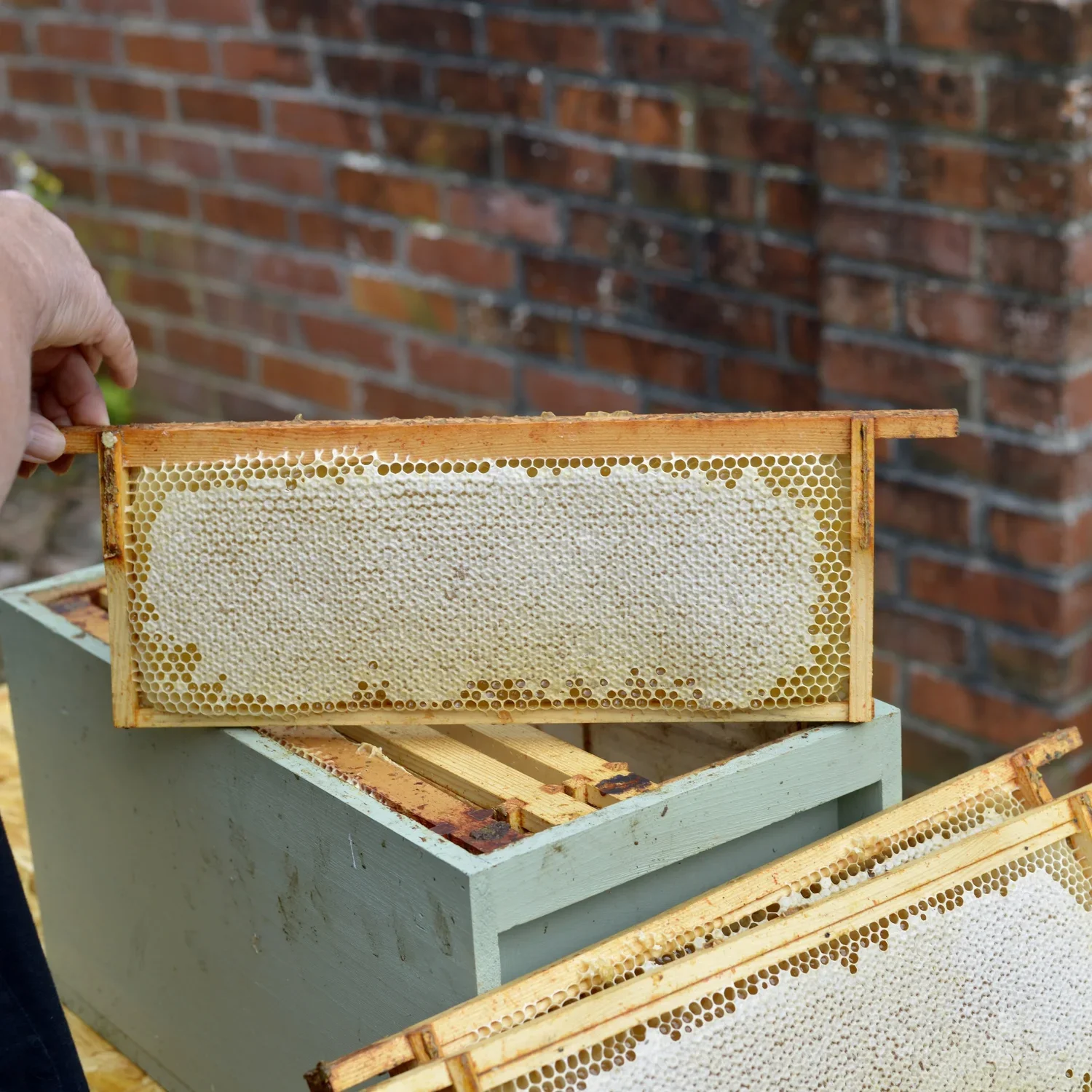
It takes 5-8lbs of Honey to make 1lb of beeswax.
The wax is harvested as a by-product of uncapping the honey frames and replacing the old and used beeswax combs. It is extracted by solar wax melters and water to filter, with no chemicals being used. Truly an environmental process, keeping the beeswax eco friendly and sustainable.
Beeswax Celebration Candles
Celebrate without plastic and paraffins using beeswax candles – each candle is hand dipped using pure beeswax and can be directly inserted into the cake. A few drips? No worries, although I wouldn’t subscribe to eating a whole candle, beeswax is edible.
